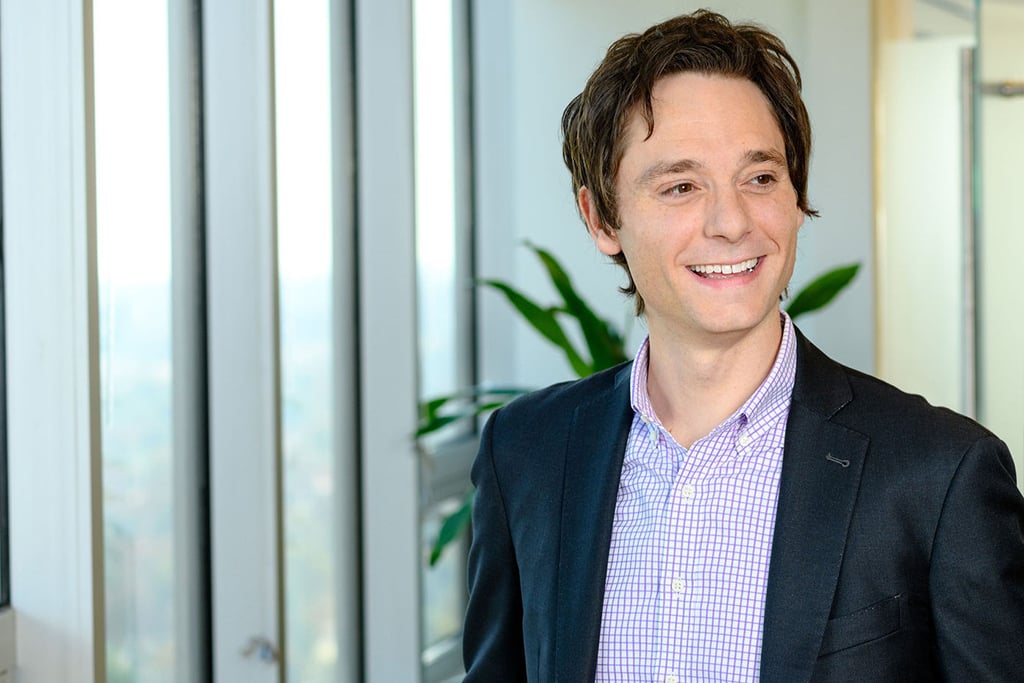Contributors
Related Articles
Neobanks, or new banks, differ from traditional banks in that they conduct business and interact with customers exclusively through digital technology platforms. These challenger fintech banks, which have grown in number from eight in 2014 to more than 375 continue to disrupt the banking landscape and are likely to surpass $330 billion in assets by 2026.1
Brazil-based Nubank, one of those original eight neobanks, is an innovative, impact-focused company that has an effective formula for competing with traditional banks and increasing financial inclusion in historically underserved markets.2
Born With a Clear Vision: Financial Inclusion
The neobank concept gained traction following the global financial crisis of 2007 to 2008, after the U.S. banking system—perceived as a standard-setter of strength and stability—collapsed, went on life support, and was eventually resuscitated. While banking as usual eventually resumed, the unnerving experience lit the match for a new wave of innovation and entrepreneurship, which meshed with a steady flow of investment capital looking for new ways to go to work.
Nubank, which was founded in 2013 to use technology to broaden access and improve peoples’ financial lives, benefited and sprouted from these fertile conditions. The company focuses on driving financial inclusion among underbanked populations, defined as those lacking sufficient access to mainstream financial services and products, including access to common banking services such as credit cards or loans.
Backed by the early development of two successful products, Nubank went from disrupter to Brazil’s third-ever unicorn company, surpassing $1 billion in market value in 2018 and drawing a significant investment from China’s largest public company, media conglomerate Tencent.3 Nubank went public in 2021 with an initial public offering valued at $45 billion, and today the company has a market capitalization over $56 billion, serves more than 100 million customers throughout Latin America, and is Brazil’s second-largest company after the oil giant Petrobras. 4 5 6
The Brazil Template
How did all of this happen? Nubank’s founders decided to directly counter two common banking pain points in Brazil, which they knew intimately from firsthand experiences. First, the system was too complex. Online banking has brought simplification, but it can still be a confusing process to get the most basic account information. Second, there was a perceived lack of transparency among consumers around how and why banks were assessing various fees, which often led to frustration and mistrust. Nubank addressed these systemic shortcomings head on, first by developing and introducing a universally accessible credit card that included features that customers, often had to haggle over with Nubank’s competitors such as streamlined approvals, no annual fees, easy auto-payment schedules, and a customer-first service approach. The company unveiled the credit card in 2014 in a bright purple color, and the “purple” card helped Nubank add its first 6,000 customers that same year.7 Today, Nubank is one of Brazil’s top-5 credit card issuers based on market share.8 In 2017, the company introduced a new credit card rewards system that differed from other programs in that it provided more tangible cash-in choices and required fewer points to reach milestone levels.
Nubank launched its second product later in 2017 in the form of a full-service digital banking account that allowed users to more easily migrate their financial information from other systems without incurring taxes or charges. An important feature of this “Nuconta” account was its simplified process, which did not entail overly extensive background or credit checks. To some, this was viewed as a positive step toward social integration and spreading more access. These two products alone spread awareness, built trust, and laid the foundation for Nubank’s ongoing success and growth.9
Expanding its Footprint
Despite Nubank’s achievements in Brazil, where it now counts more than half (54 percent) of the adult population as customers, it still has work to do.10 While the percentage of underbanked has significantly declined it still stands at over 15 percent.11 Going forward, the company plans to continue its push to democratize banking services across Latin America by scaling new products such as secured loans, and further establishing its presence in Mexico—where it has gained more than six million new users in just over four years—and Colombia, which granted Nubank approval earlier this year to begin offering new savings accounts to underbanked Colombians.12
With growth comes challenges, some of which are ongoing— such as high inflation, high interest rates, and high credit default rates—and some of which are impossible to anticipate. Growing neobanks, such as Nubank, could encounter headwinds due to higher provisioning and funding costs and less predictable credit quality related to the rising volume of new customers.
Difference Maker
Compared with their presence in the United States and Europe, neobanks have been a far more disruptive force in South America, where for the past decade Nubank and other leading fintechs have continually upended traditional banking models in Brazil and Mexico and captured significant market share. Nubank has helped drive a cultural shift toward financial empowerment and inclusion, aimed directly at solving wealthrelated inequities across Latin America. Along the way, it is showing the world that good business results and good social results can be achieved in tandem.13
Sustainable Development Goals
The Sands Capital six investment criteria tend to lead us to businesses that are innovators or vital facilitators of change in industries undergoing significant transformation. Nubank is one of many portfolio companies that create impact by addressing at least one major social or environmental challenge identified by the United Nations Sustainable Development Goals (SDGs). Nubank’s efforts support multiple SDGs, including SDG 8 (Decent Work and Economic Growth), SDG 9 (Industry, Innovation, and Infrastructure), and SDG 10 (Reduced Inequalities).
1Simon-Kucher Neobank database, 2022.
2 kbvresearch.com
3 China: largest public companies by market value 2024 | Statista
4 Nu Holdings Ltd. (NU) Valuation Measures & Financial Statistics (yahoo.com), as of 6/30/24.
5 Nubank celebrates 100 million customers with unique tribute (paymentexpert.com).
6 https://companiesmarketcap.com/brazil/largest-companies-in-brazil-by-marketcap/.
7Nubank celebrates 100 million customers with unique tribute (paymentexpert.com).
8 Credit Cards Market in Brazil – Issuers – 2022.12 Rankings – rankingslatam.
9 Final Thesis.pdf (polimi.it).
10Nu Holdings Ltd. Reports Fourth Quarter and Full Year 2023 Financial Results – Nu International (nubank.com.br). 11The current state of play in Brazilian local payments ecosystem – ThePaypers. 12 https://www.fintechfutures.com/2024/01/nubank-secures-regulatory-approval-to-operate-as-a-financing-company-in-Colombia.
13Nu Holdings (NU): Disrupting The Traditional Banking Model With Impressive Growth | Seeking Alpha.
Disclosures:
The business profiled was selected based on its reported alignment with one or more U.N. Sustainable Development Goals.
Tencent is not held in any Sands Capital portfolios.
The views expressed are the opinion of Sands Capital and are not intended as a forecast, a guarantee of future results, investment recommendations, or an offer to buy or sell any securities. The views expressed were current as of the date indicated and are subject to change.
Information contained herein may be based on, or derived from, information provided by third parties. The accuracy of such information has not been independently verified and cannot be guaranteed. The information in this document speaks as of the date of this document or such earlier date as set out herein or as the context may require and may be subject to updating, completion, revision and amendment. There will be no obligation to update any of the information or correct any inaccuracies contained herein.
This material may contain forward-looking statements, which are subject to uncertainty and contingencies outside of Sands Capital’s control. Readers should not place undue reliance upon these forward-looking statements.
There is no guarantee that Sands Capital will meet its stated goals. Past performance is not indicative of future results.
All investments are subject to market risk, including the possible loss of principal.
Differences in account size, timing of transactions, and market conditions prevailing at the time of investment may lead to different results, and clients may lose money. A company’s fundamentals or earnings growth is no guarantee that its share price will increase. The specific securities identified and described do not represent all of the securities purchased, sold, or recommended for advisory clients. There is no assurance that any security will continue to be owned by Sands Capital. You should not assume that any investment is or will be profitable.
Notice for non-US investors.













